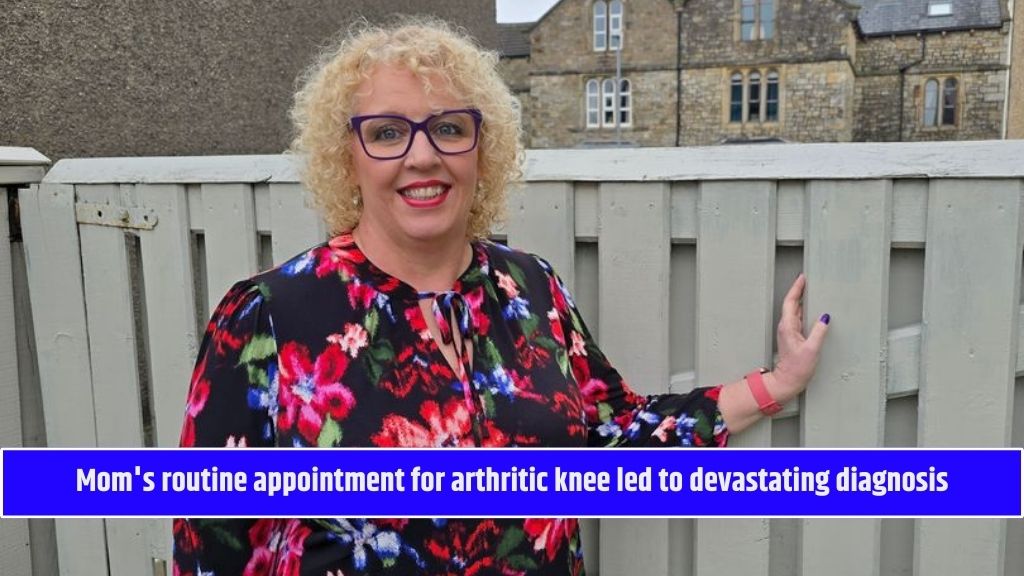What started as a routine check-up for her arthritic knee turned into a life-changing moment for Karen Dickinson, a 57-year-old IT manager from Lancaster. During her appointment, her osteopath noticed a suspicious mole on her lower back. This simple observation led to a series of tests that confirmed her worst fears—she had melanoma, the deadliest form of skin cancer.
Unfortunately, further testing revealed that the cancer had already spread to her lymph nodes, requiring intensive surgery. Now, Karen is participating in the DETECTION-2 clinical trial, which could revolutionise melanoma treatment by reducing unnecessary treatments through an advanced blood test.
The Unexpected Diagnosis
Karen, originally from Bury, had noticed the mole while stepping out of the shower but dismissed it as a result of sun exposure from a recent holiday. However, her osteopath’s concern pushed her to see a GP the next day, leading to:
- Immediate referrals and testing
- A melanoma diagnosis within weeks
- Surgery to remove the mole and affected lymph nodes
- A month off work for recovery
Reflecting on the experience, Karen said:
“It was such a shock. I had no idea how serious melanoma was, and you do worry that you could die. Telling my husband Stephen and my two girls Chelsea and Alex was the hardest part. Having cancer has changed my outlook on life—I don’t take my health for granted anymore.”
How the DETECTION-2 Trial is Changing Cancer Treatment
For most melanoma patients diagnosed early, surgery is enough to remove the cancer. However, in some cases, melanoma returns. Traditionally, patients are given a one-year preventative drug treatment to reduce recurrence risk.
Now, scientists at the Cancer Research UK National Biomarker Centre in Manchester have developed a simple blood test that can detect circulating tumour DNA (ctDNA)—small fragments of DNA shed by cancer cells—before a scan shows signs of recurrence.
How the Clinical Trial Works
- 50 patients, including Karen, are participating.
- Two groups: One receives standard NHS care, and the other gets regular ctDNA blood tests.
- If ctDNA is detected, patients are fast-tracked for treatment.
- The trial is led by The Christie NHS Foundation Trust, The University of Manchester, and the Southampton Clinical Trials Unit.
Karen had her first blood test at The Royal Preston Hospital, which showed no signs of melanoma recurrence.
Why This Blood Test is a Breakthrough
Professor Paul Lorigan, a consultant medical oncologist leading the trial, explained:
“While immunotherapy or targeted therapy after surgery can prevent cancer from returning, most patients don’t need this treatment. By using a simple blood test, we can identify those most at risk and ensure only they receive further treatment.”
Dr Rebecca Lee, senior lecturer at The University of Manchester, added:
“If ctDNA is detected, we can fast-track patients onto treatment, ensuring only those who truly need it receive drug therapy.”
A Crucial Trial as Melanoma Cases Rise in the UK
- 16,000 people are diagnosed with melanoma in the UK every year.
- Cases have increased by nearly 30% in the past decade.
- 2,200 cases occur annually in the North West alone.
Dr Iain Foulkes, Executive Director of Research and Innovation at Cancer Research UK, highlighted the importance of this study:
“This project is a major step towards personalised cancer treatment, allowing us to identify at-risk patients while avoiding unnecessary treatments and side effects.”
How This Trial Benefits Patients Like Karen
Karen describes the trial as a huge relief, saying:
“This trial means I don’t need to take medication with awful side effects unless I really need it. Plus, I’ll have regular scans and blood tests every three months, which can detect cancer returning up to 12 months earlier than a scan.”
What’s Next?
The trial is currently running at eight hospitals across the UK. If successful, it will expand to more hospital sites and patients, potentially changing how melanoma is monitored and treated worldwide.
With more advanced cancer detection methods emerging, Karen’s story highlights the importance of early diagnosis and regular health checks—even when visiting the doctor for an entirely different issue.
| Visit for More News and Updates | WSOA NEWS |















